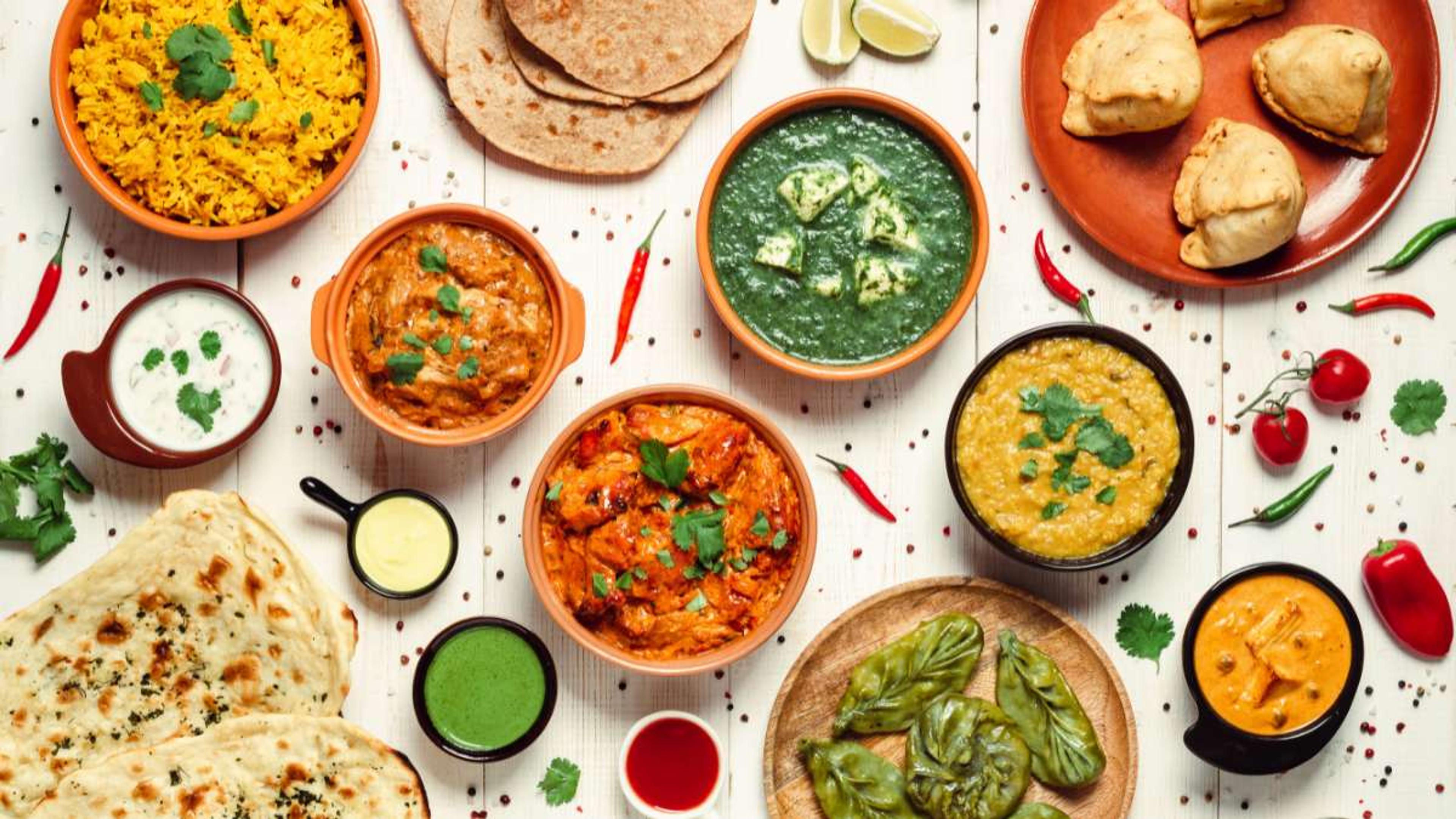A Vegan Picky Eater? Tips and Tricks for a Healthy Diet

- Key Takeaways
- Understanding Picky Eating
- 6 Tips for Becoming Vegan When You're a Picky Eater
- Incorporating Favorite Ingredients into Vegan Meals
- Importance of Variety and Trying New Foods
- Conclusion
- FAQs
Are you a picky eater considering a switch to veganism? You're not alone; transitioning to a plant-based diet can be challenging, especially when options appear limited due to specific food preferences.
This article will provide helpful strategies and supportive tips aimed at easing your transition into the vegan lifestyle, even as a choosy diner. Get ready for an enlightening journey brimming with appetizing revelations, including delicious vegan comfort food options.
Key Takeaways
- Picky eaters can transition to a vegan diet by identifying their food preferences and dislikes, and finding vegan alternatives for their favorite non-vegan foods.
- Experimenting with new ingredients and flavors is important for picky eaters who want to become vegan. Start by introducing one new fruit or vegetable at a time and explore different plant-based proteins.
- Creating a weekly meal plan, learning new cooking techniques, and modifying non-vegan recipes can help picky eaters incorporate their favorite ingredients into vegan meals.
- Trying new vegan foods adds variety to the diet and provides essential nutrients. Incorporating different types of fruits, vegetables, whole grains, beans, nuts, and seeds supports overall well-being.
Understanding Picky Eating
Picky eating is a common behavior characterized by an extreme dislike or avoidance of certain foods, often resulting in a limited and repetitive diet.
What Makes Someone a Picky Eater?
Science has shown that picky eating is not solely a result of food allergies or dietary restrictions, but rather a complex interplay between genetics and environmental factors. This means that both children and adults can fall into the category of picky eaters, with their preferences and aversions shaped by a combination of inherited traits and their surroundings.
Some people become picky eaters because of their genes and what's around them. Genetics play a significant role in determining our taste preferences. Research suggests that certain individuals may possess heightened sensitivities to tastes such as bitterness or spiciness, making them more inclined to avoid certain foods. Additionally, genetic variations can impact the way we perceive flavors, leading to preferences for specific tastes or textures.
Environmental factors, such as cultural upbringing and social influences, also shape our eating habits. For example, being exposed to a limited range of foods during childhood can contribute to a picky eating behavior that persists into adulthood. Similarly, societal norms and peer pressure can influence food choices and further reinforce picky eating tendencies.
This knowledge helps us find ways to deal with it. A person may have strong likes or dislikes for certain foods making them a picky eater. The way a person thinks can change how they eat too.
Common Concerns for Vegan Picky Eaters
Picky eaters often say no to new foods. They eat the same meals again and again. This can be hard if you are a vegan picky eater. You might not get enough of some nutrients from your food.
For example, protein, iron or other health-boosting things that bodies need. Also, your friends might make fun of you for being picky with your food choices which can hurt feelings too.
Feeding little children that are vegan and picky about their food is tough as well! Starting a vegan diet needs good food planning to make sure it's healthy!
6 Tips for Becoming Vegan When You're a Picky Eater

1. Identify your preferences and dislikes
First, make a list of foods you love and hate. This first step is key to build your vegan meal plan. It helps you find out likes and dislikes in food. You have to know this before trying new foods or changing your diet.
Use this list when you shop for groceries or pick a recipe.
2. Research and find vegan alternatives for your favorite non-vegan foods
To begin your journey towards a vegan diet as a picky eater, it's important to research and find vegan alternatives for your favorite non-vegan foods. Make a list of the foods you enjoy that are already vegan, such as fruits, vegetables, grains, and nuts.
Next, brainstorm vegan versions of your favorite dishes or ingredients for your grocery list. For example, if you love dairy products like cheese or milk, consider trying plant-based alternatives like almond milk or vegan cheese made from cashews. Another option is to use maple syrup as a sweetener instead of honey.
There are also plenty of meat substitutes available like tofu or tempeh that can be used in place of animal proteins. By exploring different options and being open to new flavors, you'll discover delicious alternatives that fit your preferences while still adhering to a vegan lifestyle.
3. Experiment with new ingredients and flavors
Experimenting with new ingredients and flavors is an important tip for picky eaters who want to transition to a vegan diet. By trying out different foods, you can discover new favorites that are both tasty and plant-based, making them good choices for your health and the environment.
Start by introducing one new fruit or vegetable at a time, so it's not too overwhelming. You can also focus on vegetables with milder flavors if you're hesitant about trying something strong-tasting.
There are many delicious options like spinach, kale, broccoli, and black beans that you can incorporate into your meals - may be it be your favourite pasta or rice in the making. Additionally, experimenting with different plant-based proteins such as tofu, lentils, and chickpeas can provide alternative sources of protein for picky eaters.
Taking small steps and being open-minded will help you expand your palate and find new vegan dishes that you enjoy.
Keep in mind that everyone's taste preferences are different, so it's okay if there are certain ingredients or flavors that you still don't like even after experimenting. The most important thing is to keep trying new foods and exploring different recipes until you find what works best for you.
4. Create a weekly meal plan
To make your transition to a vegan diet easier as a picky eater, it's important to create a weekly meal plan. This will help you stay organized and ensure that you have all the ingredients you need for your meals.
Start by making a list of your favorite vegan foods and find recipes that use those ingredients. Plan out what meals you want to have each day, including breakfast, lunch, dinner, and snacks.
Consider incorporating different cuisines and flavors to keep things interesting. Having a meal plan in place will save you time and make grocery shopping much easier.
5. Learn new cooking techniques and recipes
Learning new cooking techniques and recipes is an important step in becoming a vegan, especially for picky eaters. By expanding your culinary skills, you can discover exciting ways to prepare plant-based meals that are both delicious and satisfying.
Trying out different cooking methods like baking, sautéing, or grilling can bring out unique flavors in vegetables and other ingredients. You can also explore various cuisines to find new flavor profiles and ingredient combinations that appeal to your taste buds.
Joining a local vegan community or support group can provide opportunities to learn from others and share recipe ideas. With time and practice, you'll become more confident in the kitchen and have a wide range of tasty vegan dishes at your fingertips. Don't forget to try out vegan recipes from other countries too!
6. Ensure proper nutrition and consider supplements
Proper nutrition is really important when following a vegan diet, especially for picky eaters. It's essential to make sure you're getting all the necessary nutrients. One way to do this is by incorporating a variety of plant-based foods into your meals.
This can include fruits, vegetables, whole grains, legumes, and nuts. It's also a good idea to consider taking supplements like vitamin B12 and omega-3 fatty acids to ensure you're meeting your nutritional needs.
Taking these steps will help keep you healthy while enjoying your vegan lifestyle.
Incorporating Favorite Ingredients into Vegan Meals
Find recipes that utilize your favorite ingredients and modify non-vegan recipes to fit a vegan diet. Experiment with different plant-based protein sources to add variety to your meals.

Finding recipes that use your favorite ingredients
If you're a picky eater, finding recipes that use your favorite ingredients can make transitioning to a vegan diet easier. There are plenty of delicious plant-based recipes out there that incorporate familiar flavors and foods.
Whether it's using chickpeas in hummus, adding avocado to toast, or enjoying black beans in tacos, you can still enjoy your favorite ingredients while following a vegan lifestyle. Additionally, modifying non-vegan recipes to fit a vegan diet is also possible with the abundance of dairy-free alternatives available today.
So don't worry about missing out on your favorite dishes – there are plenty of options for creating tasty and satisfying meals while sticking to a vegan diet.
Modifying non-vegan recipes to fit a vegan diet
Modifying non-vegan recipes to fit a vegan diet is all about adapting the recipes to remove animal-based ingredients and replacing them with plant-based alternatives. This is important for people who follow a vegan lifestyle or have dietary restrictions.
Vegan diets exclude all food and derivatives of animal origin, while vegetarian diets may include eggs, dairy, and honey. By substituting ingredients like tofu or tempeh for meat, and using plant-based milk instead of dairy milk, you can enjoy delicious meals that align with your vegan diet.
It's a great way to explore new flavors and experiment in the kitchen while staying true to your values.
Trying out different plant-based protein sources
There are many plant-based protein sources that can be tried out when following a vegan diet. Seitan, made from gluten, is popular among vegetarians and vegans for its high protein content.
Tofu and mushrooms are great meat substitutes that provide a similar texture to meat. Soy, pulses like lentils and black beans, nuts, and spirulina are excellent options for creating high-protein meals.
Additionally, incorporating foods like quinoa, avocado, cherry tomatoes, and broccoli into your diet will ensure you're getting enough plant-based protein. These protein-rich sources offer essential nutrients to sustain proper nutrition on a vegan diet.
Importance of Variety and Trying New Foods
Trying new vegan foods can be a fun and exciting way to add variety to your diet. From exploring different cuisines to discovering new flavors, incorporating a wide range of plant-based options can enhance your nutritional intake and expand your culinary horizons.
So why not challenge yourself to try one new vegan food every day? Find out more about the benefits of a diverse and balanced vegan diet in our blog! Read on for delicious meal ideas and tips on how to incorporate favorite ingredients into your vegan meals.

Benefits of a diverse and balanced vegan diet
A diverse and balanced vegan diet has many benefits for your health. It includes a wide variety of fruits, vegetables, whole grains, beans, nuts, and seeds. This helps ensure that you get all the essential nutrients your body needs to thrive.
Vegan diets are rich in fiber, vitamins, minerals, and antioxidants which can help reduce the risk of chronic diseases like heart disease and type 2 diabetes. Studies have shown that following a vegan diet can lower cholesterol levels and improve blood glucose control.
Additionally, plant-based diets tend to be lower in unhealthy fats and higher in healthy ones - this promotes heart health by reducing the risk of high cholesterol levels.
Vowing to try one new vegan food every day or month
Trying one new vegan food every day can be an exciting and beneficial way to incorporate variety into your vegan diet. By exploring different ingredients, you can expand your palate and discover new flavors that you enjoy.
This helps prevent boredom and ensures that you're getting a wide range of nutrients from fruits, vegetables, whole grains, beans, nuts, and seeds. Whether it's trying a new vegetable in a stir-fry or experimenting with a plant-based protein like tofu or lentils in your meals, the possibilities are endless.
So make a vow to try something new each day and watch as your taste buds awaken to delicious meals that support your vegan lifestyle.
Exploring different cuisines and flavors
Exploring different cuisines and flavors is an exciting way to add variety to a vegan diet for picky eaters. Trying new foods can help expand their palate and open up more options for delicious meals.
It's important to remember that there are numerous plant-based ingredients and seasonings available, such as herbs, spices, and sauces, that can enhance the taste of dishes. From Mexican cuisine with black beans and avocado to Asian dishes with tofu and stir-fried veggies, there is a world of flavors waiting to be discovered.
By exploring different cuisines, picky eaters can find new favorite ingredients and recipes that fit their vegan lifestyle while enjoying a diverse range of tastes.
Conclusion
In conclusion, starting a vegan diet as a picky eater can be challenging, but it's not impossible. By identifying your preferences, finding alternatives for non-vegan foods you love, and experimenting with new ingredients and flavors, you can create delicious meals that fit your dietary needs.
Remember to prioritize nutrition and try new foods gradually to expand your palate. With time and patience, you can embrace the vegan lifestyle while still enjoying the foods you love.
FAQs
1. Can picky eaters follow a vegan diet?
Yes, picky eaters can follow a vegan diet by exploring different plant-based foods and recipes that align with their taste preferences.
2. How can I ensure enough nutrients on a vegan diet as a picky eater?
As a picky eater following a vegan diet, it is important to focus on consuming a variety of fruits, vegetables, whole grains, legumes, nuts, and seeds to ensure you are getting all the necessary nutrients.
3. What are some easy and tasty vegan recipes for picky eaters?
Some easy and tasty vegan recipes for picky eaters include pasta dishes with tomato sauce and vegetables, veggie stir-fry with tofu or tempeh, bean burgers or lentil patties with your favorite toppings, and fruit smoothies with added greens.
4. Are there any alternatives for common animal-based ingredients that would suit the taste of picky eaters?
Yes! Picky eaters can explore alternatives such as plant-based milks (e.g., almond milk), dairy-free cheese substitutes made from nuts or soy products like tofu or tempeh as replacements in their meals while following a vegan diet.

